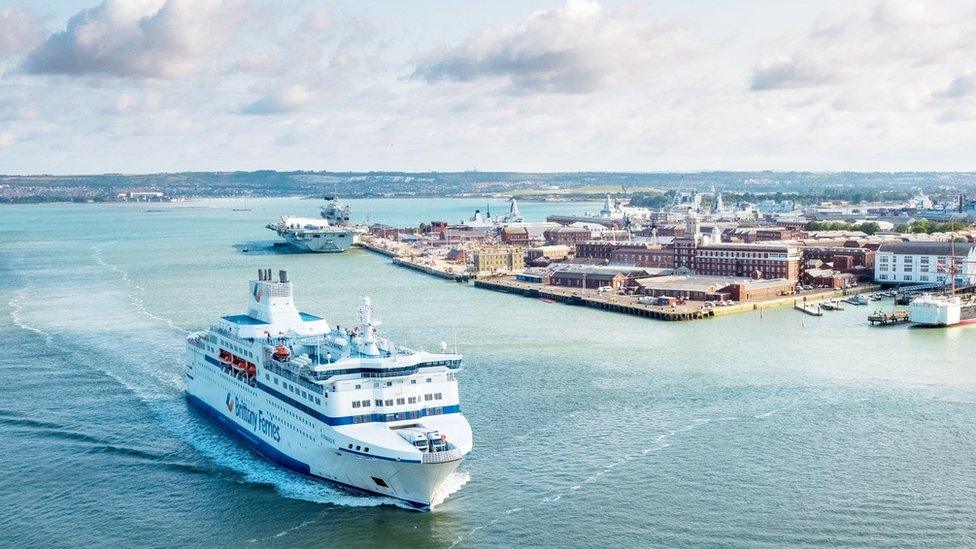Coronavirus: Passenger ferries return to Plymouth amid 'mixed feelings'
- Published
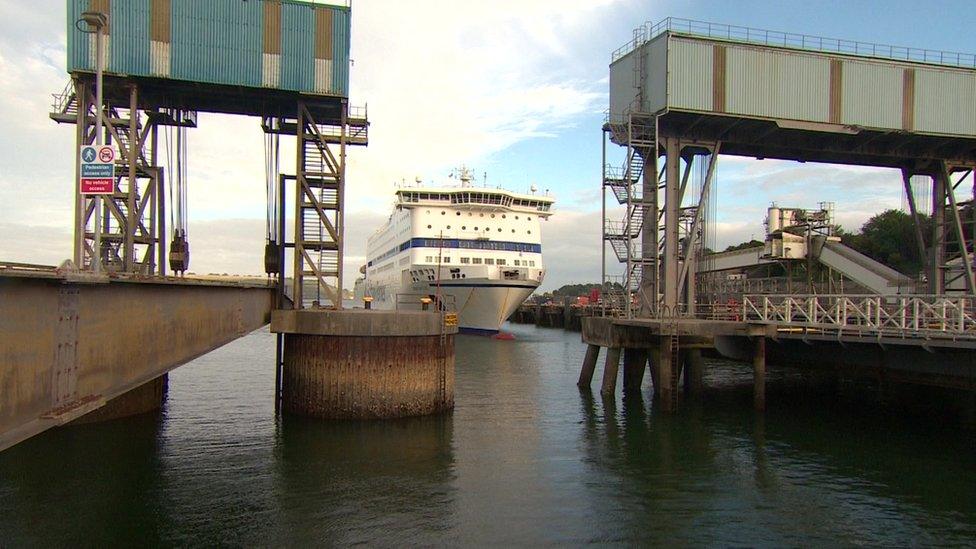
The Armorique docks in Plymouth: Face masks must be worn in public places
Passengers boarding the first ferry leaving Plymouth for three months said they had "mixed feelings" about travelling.
Capacity on board the Armorique has been reduced from 1,500 to 550, in line with all Brittany Ferries' coronavirus rules.
CEO Christophe Mathieu predicted a "poor summer" with "half of what we normally carry in July and August".
He said services were "a bit of a risk" with uncertainty over quarantine rules.
The UK Government is currently advising against all but essential international travel and has not given a date for when quarantine will end.
The measures were due to be reviewed on 29 June, three weeks after their introduction, to check they remained ''effective and necessary''.
The last passenger ferry out of Plymouth was on 18 March and now Brittany Ferries has started a phased return of services for its routes between southern England, the Republic of Ireland, France and Spain.
The Armorique docked in Plymouth at 20:10 BST on Monday from Roscoff in France before sailing to Roscoff at 22:00 BST.

Jacques Pirion left, was returning to France after an extended stay in Cornwall with his family
"I have very mixed feelings about going back," said Roscoff-bound passenger Jacques Pirion, whose stay in the UK was extended by the lockdown.
Mr Pirion had been due to return home to Brittany in March after visiting his family in Lostwithiel, Cornwall.
"It's been challenging to be quite honest, looking after the little ones and being confined together," he said.
"But I've been teaching my six grand-children and enjoying it thoroughly.
"I will miss them terribly but like Vera Lynn, 'We will meet again'.
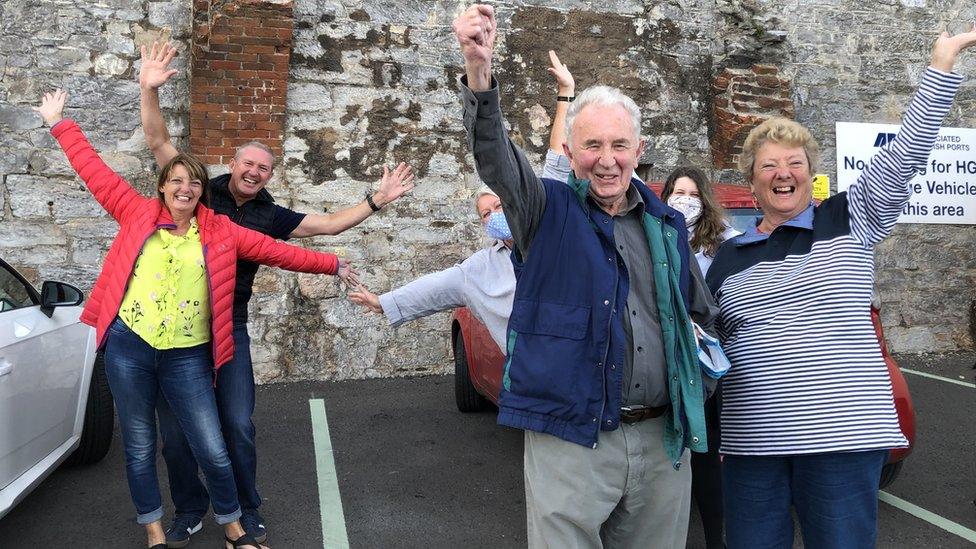
John and Mary Lovelock, pictured with their family, are ready to return to France
John and Mary Lovelock, who have homes near Roscoff in France and Lostwithiel in Cornwall, were also waiting for the Armorique.
"John planted the garden up in February before we left France, so we hope we've got some fresh vegetables waiting for us," said Mrs Lovelock.
"We're ecstatic about returning, but Cornwall has been wonderful, especially the Co-Op in Lostwithiel which has been our lifeline."
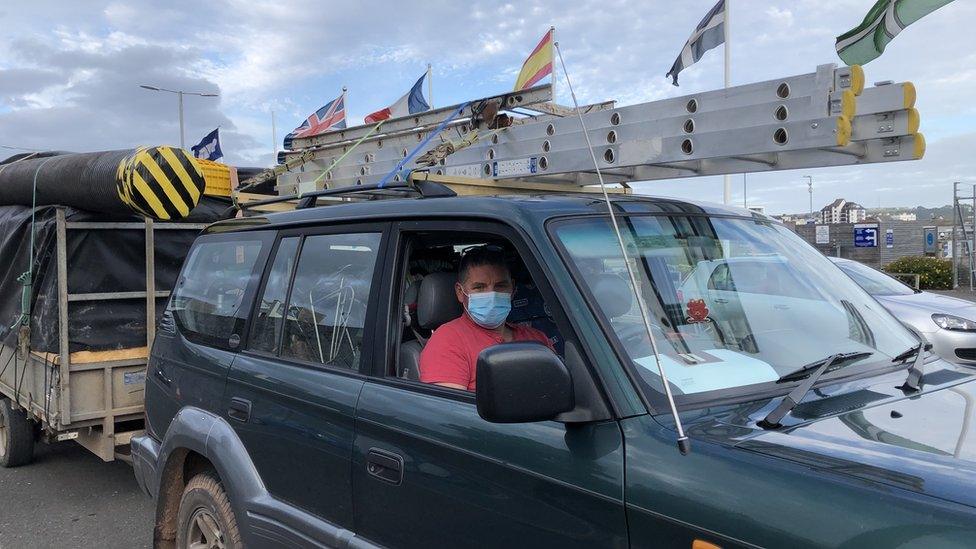
Robin Hart: "I'm concerned about what the locals will feel with me turning up"
Robin Hart, who also has a home in France, said: "I'm relieved to be returning so I can get some jobs done after a long time in lockdown.
"I'm concerned about what the locals will feel with me turning up, but I've put out a few feelers and they all seem to be quite happy about it.
"As long as you respect the distancing, I think everyone will be ok."
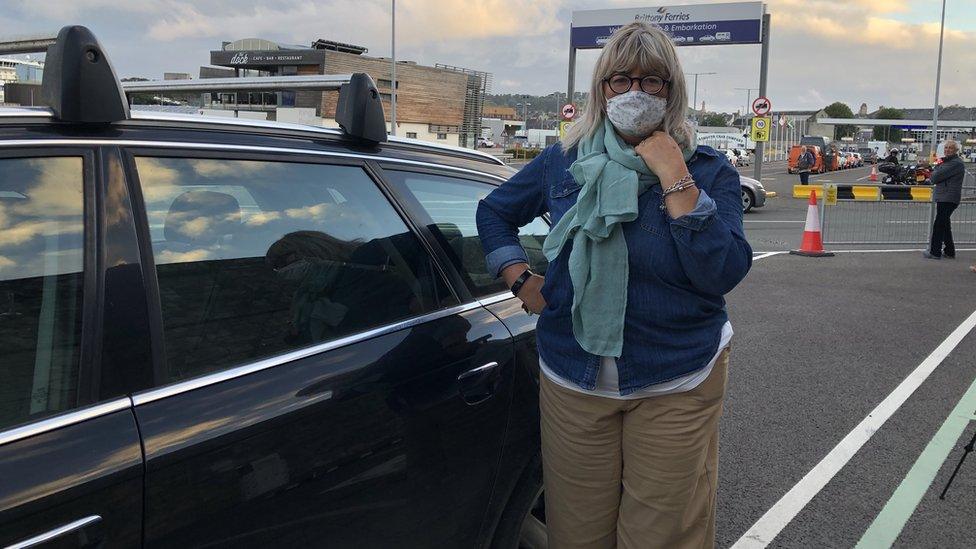
Nickola Symes: "Bit scary" returning to England
Nickola Symes, who lives in France, was on the ferry from Roscoff and said it was a "bit scary" returning to England.
"I had to come back to see poorly relative, but if not for that I would have waited longer," she said.
"In France everyone has been wearing masks and taking precautions.
"Looking at what's been happening here, people seem unable to see how serious it is."
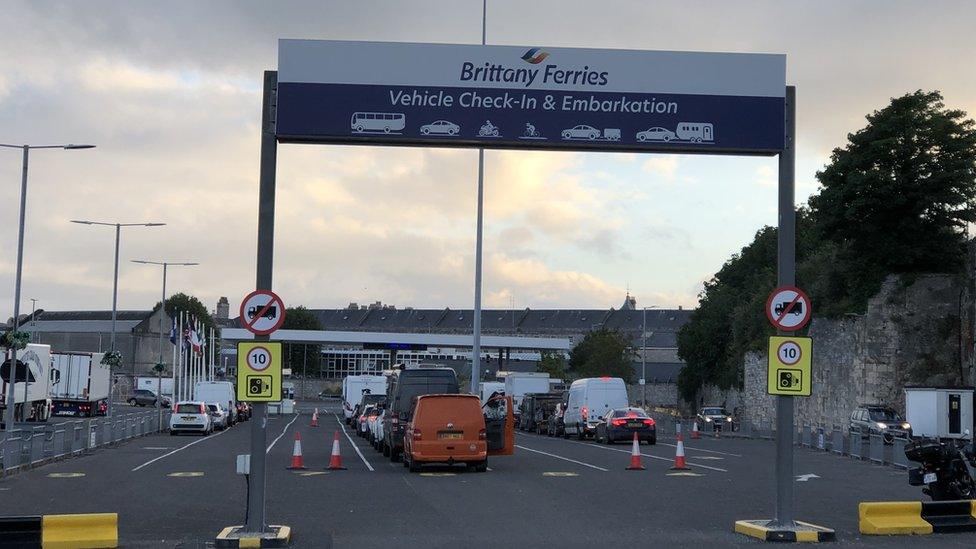
Passengers check in for the first time in more than three months at the ferry terminal in Plymouth

What are the current quarantine rules?
People arriving in the UK should drive their own car to their destination, where possible, and once there they must not use public transport or taxis
Arrivals must not go to work, school, or public areas, or have visitors - except for essential support. They are also not allowed to go out to buy food, or other essentials, where they can rely on others
Those arriving in England, Wales and Northern Ireland could face a fine of £1,000 if they fail to self-isolate for the full 14 days, while they face a £480 fine in Scotland. The maximum fine for repeat offenders in Scotland is £5,000
For more on the rules click here.

RISK AT WORK: How exposed is your job?
THE R NUMBER: What it means and why it matters
COMPARING COUNTRIES: The pitfalls of doing so
R0, FURLOUGH: The language of the outbreak
RECOVERY: How long does it take to get better?


- Published27 June 2020
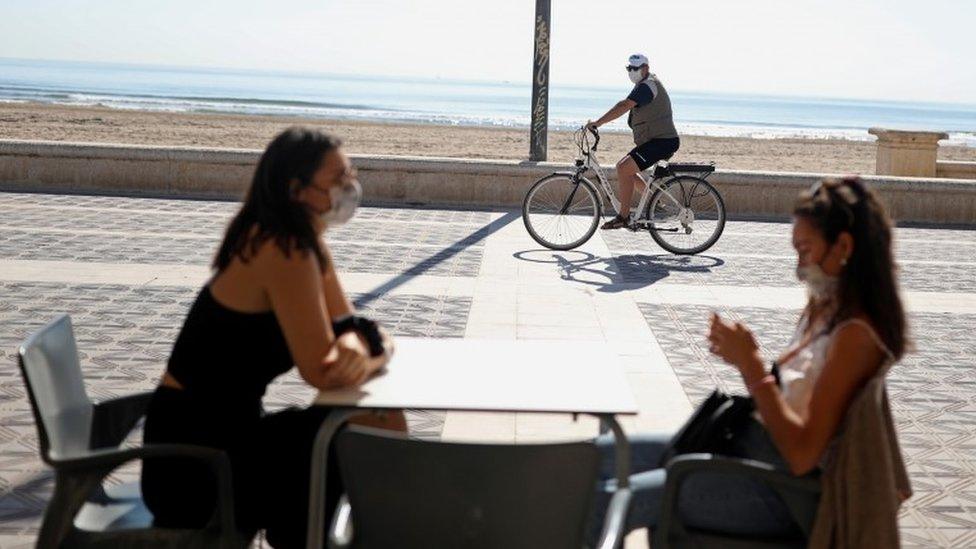
- Published27 June 2020
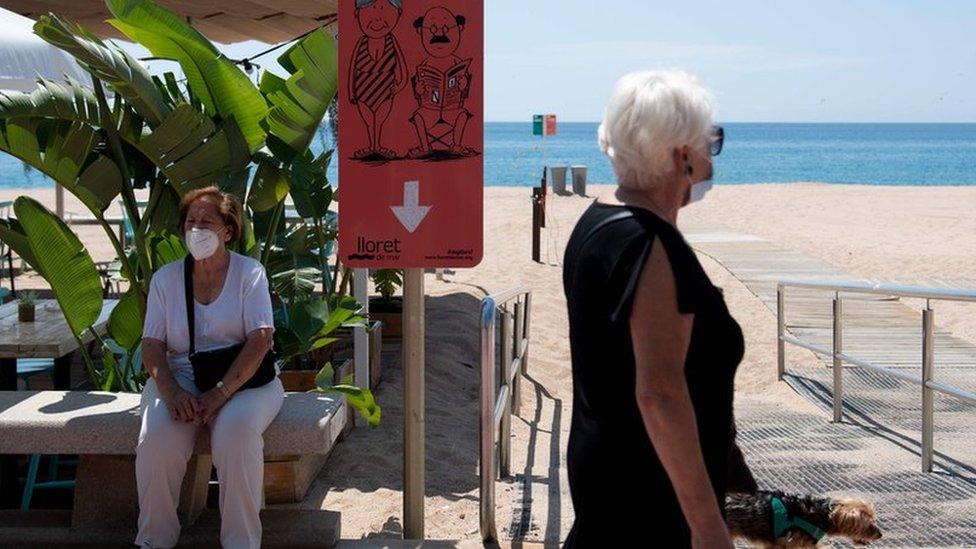
- Published29 November 2021
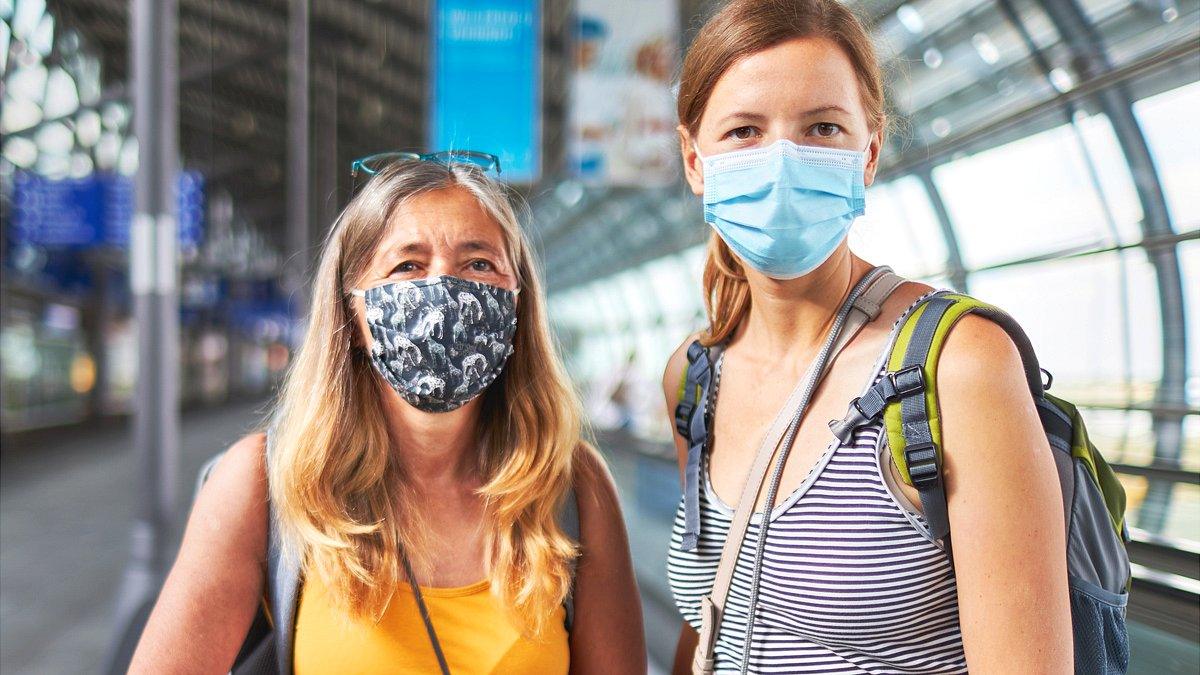
- Published24 June 2020
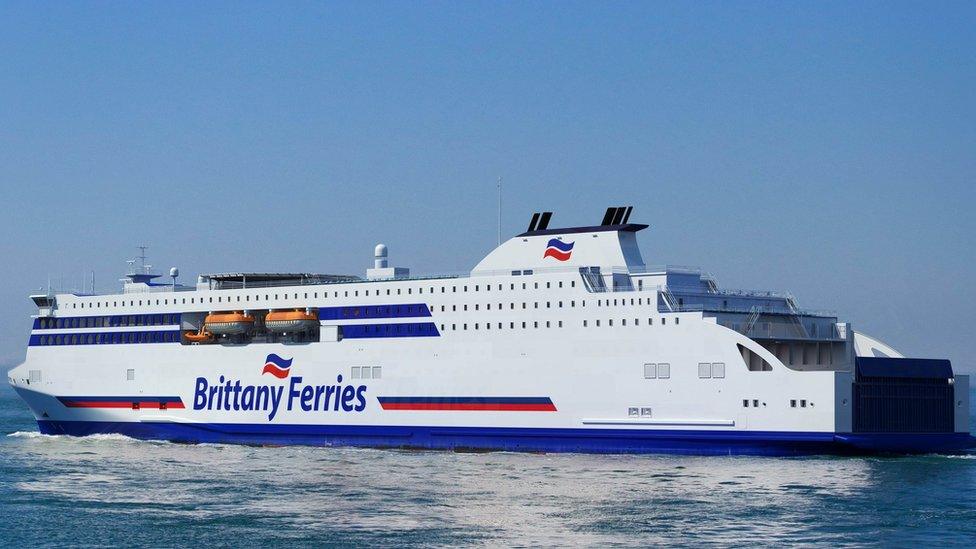
- Published10 June 2020
